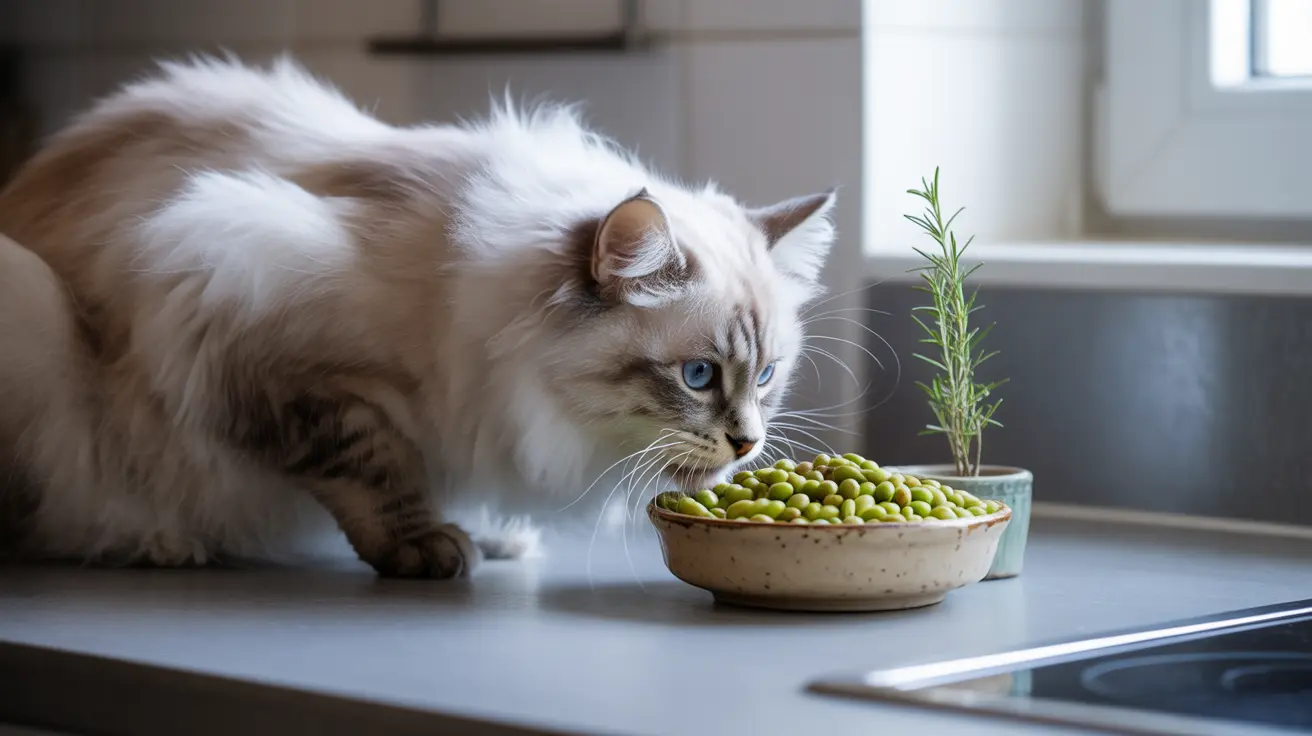Understanding Cats' Nutritional Needs
Cats are obligate carnivores, which means they require animal-based proteins to survive and thrive. Unlike humans or even dogs, cats have evolved to depend entirely on nutrients found only in animal tissues, such as taurine and preformed vitamin A.
This fundamental biological requirement makes plant-based proteins like soy problematic for feline nutrition, regardless of how beneficial they might be for humans.
The Effects of Soy on Feline Health
Digestive Issues
Many cats experience digestive problems when consuming soy products. Common symptoms include:
- Bloating and gas
- Diarrhea
- Vomiting
- Stomach discomfort
Thyroid Function Concerns
One of the most significant concerns about soy consumption in cats is its potential impact on thyroid health. Soy contains compounds called isoflavones that can interfere with normal thyroid function, potentially contributing to hyperthyroidism in cats.
Hidden Dangers in Commercial Cat Foods
Some commercial cat foods contain soy as a protein filler or texturizer. While this helps manufacturers reduce costs, it may not be in your cat's best interest. When selecting cat food, carefully read labels and choose products that list animal proteins as primary ingredients.
Common Sources of Soy in Cat Food
- Soy protein concentrate
- Soy flour
- Textured vegetable protein
- Soy meal
Safe Alternatives to Soy
Instead of soy-based products, focus on providing your cat with appropriate animal-based proteins such as:
- Quality commercial cat food with named meat sources
- Cooked lean meats (as treats)
- Fish (in moderation)
- Specialized veterinary diets when necessary
Frequently Asked Questions
Can cats safely eat soy or soy-based products like tofu or soy milk?
No, cats should not regularly consume soy or soy-based products. While small accidental amounts aren't usually dangerous, soy products don't provide appropriate nutrition for cats and may cause health issues.
What are the health risks of feeding soy to cats regularly?
Regular soy consumption can lead to digestive problems, thyroid dysfunction, hormonal imbalances, and potential nutrient deficiencies in cats. It may also interfere with mineral absorption and cause allergic reactions in some cats.
How does soy affect a cat's thyroid function and risk of hyperthyroidism?
Soy contains isoflavones that can disrupt thyroid function in cats. These compounds may interfere with hormone production and regulation, potentially increasing the risk of hyperthyroidism over time.
Why is soy protein unsuitable as a replacement for animal protein in a cat's diet?
As obligate carnivores, cats require specific amino acids and nutrients found only in animal proteins. Soy protein lacks these essential components and doesn't provide the complete nutritional profile cats need to maintain health.
Is soy sauce toxic to cats and why should it be avoided completely?
Yes, soy sauce is toxic to cats primarily due to its extremely high sodium content. Even small amounts can lead to salt poisoning, causing severe dehydration, kidney problems, and potentially life-threatening complications.
Conclusion
While soy isn't immediately toxic to cats, it's best to avoid feeding it to your feline companion. Focus instead on providing species-appropriate nutrition through high-quality, meat-based foods. If you're concerned about your cat's diet or they've consumed soy products, consult with your veterinarian for personalized advice.






